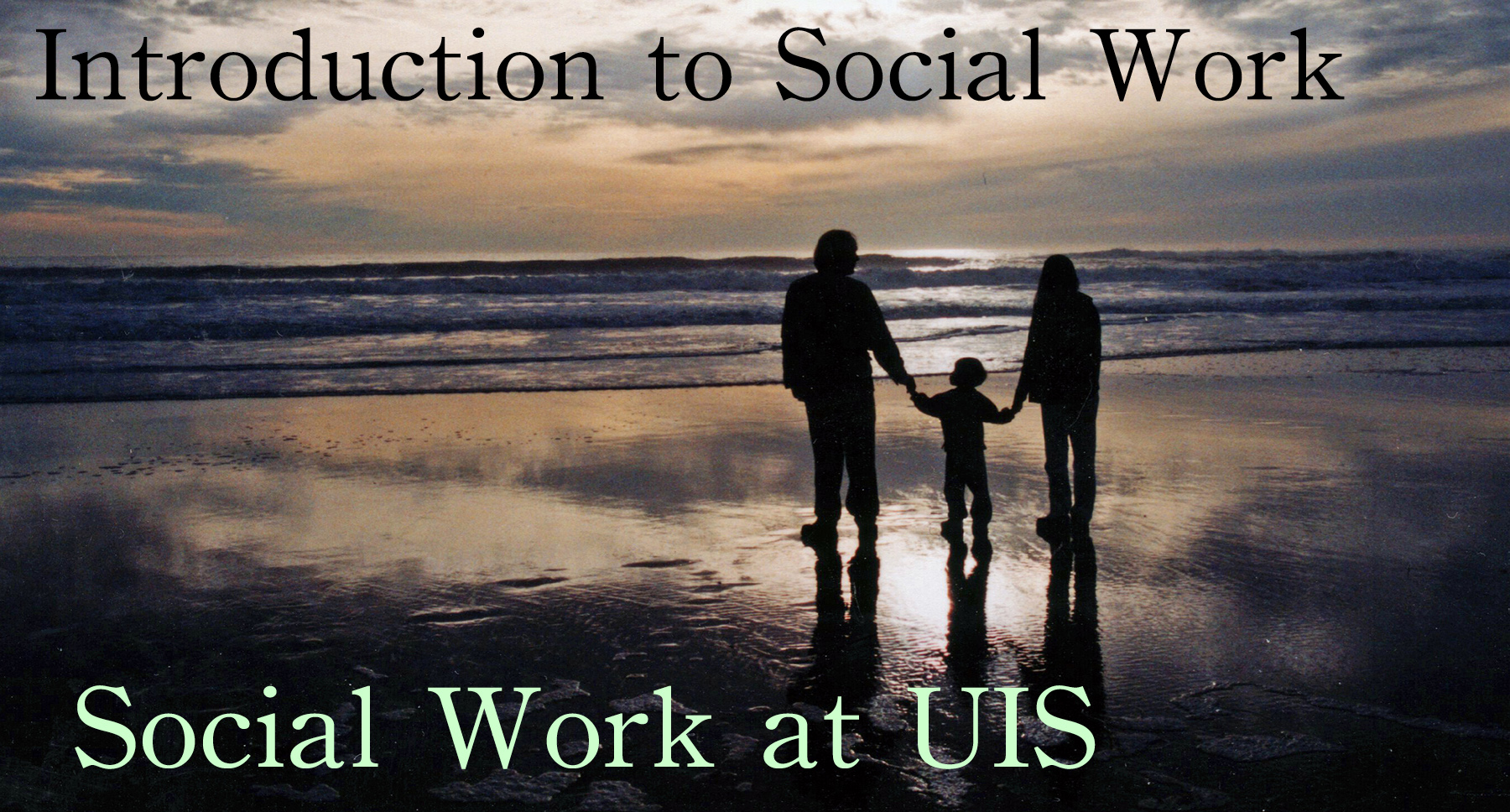Class session lasts from March 3 at 2:00 p.m. to March 10 at 1:59 p.m. Discussion boards will not be graded before March 17 at 4:30p.m.
This page describes what you should do in this seventh session.
Activities
Share your paper (in its first draft form) with your writing group peers. You will also receive first drafts from your classmates in your writing group, and you can start to read and give feedback to them on their papers. You may directly e-mail the drafts to your classmate, or you may submit it in Canvas as an assignment (your instructor will forward any drafts submitted as assignments to your peers in your writing group without looking at your paper).
In Spring of 2021, the writing groups are as follows:
Azure Group: Meghan, Claudia, and Megan mburr4@uis.edu, cmika2@uis.edu, mmile4@uis.edu.
Rose Group: Jenna, Genevieve, and Madison jcisc3@uis.edu, groge2@uis.edu, mgilb6@uis.edu.
Gold Group: Ke'Shawna, Lazerric, and KiWanna kprim2@uis.edu, lhart9@uis.edu, kholm5@uis.edu.
Carnation Group: No one is assigned to this group
Sable Group: No one is assigned to this group, either
Your assignments this week are reading and working on your paper.
Here are the discussion questions. You should have time to answer a few of them, and also respond to some of your classmates. Remember to devote at least an hour to the discussion board participation, even if you attended the Zoom class meeting.
-
DQ 7-1: How are you doing?
The seventh week is nearly half-way through the semester. At this point, it is a good idea to pause and reflect on what we hope to gain from our classes, and what questions about the topics covered in these classes. What are we learning that will help us? What do we want to know? Check in this week with some comment about something you are hoping yet to learn this semester in your classes. What are things you want to accomplish in what remains of this semester?
- DQ 7-2: Inculcating Ethical Practice
In this course, we put a lot of emphasis on professional and ethical practice. One way we do this is to examine memoirs and novels and accounts of daily lives of social workers, and look for examples of how people behave professionally and ethically. What are some of your opinions about the best ways to help people live more ethical lives or more behave with more professionalism? Is looking at examples in stories about social workers (social cues, peer references, cultural expectations) an effective method, in your opinion? What are some other things we might do to help each other become more ethical and professional as we enter a helping profession such as social work? What works for you?
-
DQ 7-3: Ethical Principle of Competence
Social workers continually strive to increase their professional knowledge and skills, and to apply them in practice. Social workers should aspire to contribute to the knowledge base of the profession. In our class, you and many of your classmates may be about to enter the field of social work, or other allied professions (e.g., psychology, nursing, criminology, counseling, teaching, law, medicine, etc.). We may think of competence as something we gain through supervision of an experienced professional when we do field work or while we are working under guidance of an experienced colleague while working toward our licensure. It is also obvious that we gain competence through seminars and training where we earn continuing education credit (a necessary part of retaining our licenses). We should also be gaining competence in classes while earning B.S.W. or other degrees. Contributing to the knowledge base also is clearly applicable to the issue of helping researchers study program effectiveness or otherwise study people. But, let us think about the smaller steps. How can contributing to classroom discussions or posting in discussion boards contribute to the knowledge base of the profession? How can discussing classes and what we are learning contribute to the knowledge base?
- DQ 7-4: Why is there so much content on diversity?
In this course we read a memoir by an African-American social work academic, and we watch a long documentary about a young Native American mother. In some of our assigned books we also encounter people from various backgrounds. To earn a B.S.W. you will take a class on human diversity. Let us consider two reasons institutionalized within our profession that encourage this.
First, in the Code of Ethics, we have section 1.05 (Ethical Standards; ethical responsibilities to clients, cultural awareness and social diversity), which states:
(a) Social workers should understand culture and its function in human behavior and society, recognizing the strengths that exist in all cultures.
(b) Social workers should have a knowledge base of their clients' cultures and be able to demonstrate competence in the provision of services that are sensitive to clients' cultures and to differences among people and cultural groups.
(c) Social workers should obtain education about and seek to understand the nature of social diversity and oppression with respect to race, ethnicity, national origin, color, sex, sexual orientation, gender identity or expression, age, marital status, political belief, religion, immigration status, and mental or physical ability.
(d) Social workers who provide electronic social work services should be aware of cultural and socioeconomic differences among clients and how they may use electronic technology. Social workers should assess cultural, environmental, economic, mental or physical ability, linguistic, and other issues that may affect the delivery or use of these services.
And then, in the Council on Social Work Education’s guidelines on core competency 2 (Engage Diversity and Difference in Practice) we have these directives:
Social workers understand how diversity and difference characterize and shape the human experience and are critical to the formation of identity. The dimensions of diversity are understood as the intersectionality of multiple factors including but not limited to age, class, color, culture, disability and ability, ethnicity, gender, gender identity and expression, immigration status, marital status, political ideology, race, religion/spirituality, sex, sexual orientation, and tribal sovereign status. Social workers understand that, as
a consequence of difference, a person’s life experiences may include oppression, poverty, marginalization, and alienation as well
as privilege, power, and acclaim. Social workers also understand the forms and mechanisms of oppression and discrimination and recognize the extent to which a culture’s structures and values, including social, economic, political, and cultural exclusions, may oppress, marginalize, alienate, or create privilege and power. Social workers:
- apply and communicate understanding of the importance of diversity and difference in shaping life experiences in practice at the micro, mezzo, and macro levels;
-
present themselves as learners and engage clients and constituencies as experts of their own experiences; and
-
apply self-awareness and self-regulation to manage the influence of personal biases and values in working with diverse clients and constituencies.
Consider the approaches we use in this class and in the overall B.S.W. curriculum at UIS. Considering the time constraints, the total quantity of skills and knowledge we need to help students acquire, and the limits to what people can retain through classroom and online instruction, are we doing what is likely to help you and your classmates achieve this competency, and how are we doing in helping you prepare for practice with diverse clients? What suggestions do you have? And, yes, we know that cultural competence and understanding diversity comes mostly through your friendships and relationships with diverse persons, and so it is your responsibility to be especially friendly and welcoming with people who are different from you so that you can build greater cultural competence in our society (as people from diverse backgrounds get to know each other and spend more time together in friendly activities), but what about the things that we could do in classes? Can you think of other approaches we should be using or adding to our curriculum?
-
DQ 7-5: Playing games with racial identity
Larry Davis describes playing a sort of game in which his mom, who could pass for being an European-American, and he, who was obviously African-American would pretend to take on roles other than mother-and-son when out in public. For example, when his mom was in a dime-store shopping for underwear for Larry, he would pretend to not be related to her and complain to the clerk that this strange white lady was trying to buy him underwear. Or later, as a professor at the University of Hawaii, when his mom was trying on shoes in a shoe store and he was helping her, he told another shopper that he couldn’t help her because he was a “personal valet” for his mom.
People who study humor as a scientific subject identify several reasons why some things are funny, and how humor and game-playing are an important part of human experience (and, evidently, the experience of several other sentient beings, not only humans). Humor is sometimes based on shock, and the unexpected, and the novel, and things that violate rules of tropes and clichés. Humor is also often based on revealing unspoken assumptions or examining mindless and unconsciously accepted behaviors or thoughts that are ubiquitous and yet clearly wrong or absurd (satire). What is your understanding of how the game-playing of taking on roles other than mother-and-son might have deepened Larry’s relationship with his mother? How could such joking around be a way for his mother to encourage an interest in race and an attitude of doubt and questioning toward hegemonic ideas about race in our society? Can you share any experiences you have had, or stories or anecdotes that you heard, that showed how someone you know was “playing” with ideas or assumptions about race?
- DQ 7-6: Issues during the pandemic
In 2020-2021 the USA suffered a terrible pandemic in which hundreds of thousands of Americans perished, and millions experienced serious illness. During the pandemic, millions of jobs disappeared and many people became isolated as they followed rules to limit contact with others. During the pandemic, there was an increase in drug overdose deaths. There were drops in reports of child maltreatment probably caused by mandated reporters and others having less opportunities to observe children who had been suffering from maltreatment. Many persons with poor internet service were especially isolated, as were older persons who were not comfortable using commuters or technologies that allowed virtual contact with others. As the disease posed a significant risk of serious illness and death to older adults, and a not insignificant risk of harm to middle-aged and younger adults, there was widespread anxiety and fear. Many persons felt traumatized by their social isolation and the changes to their routines (no eating indoors in restaurants, everyone wearing masks when in public indoor spaces, no live music or sporting events, many people working form home, children attending classes online, and so forth).
You have lived through this historic and transformational period of American life. What is your understanding of how the profession of social work responded? What ideas do you have about how social work might transform itself as a result of the pandemic? What are your opinions about social workers delivering counseling and casework services through screen-and-camera technologies? If you were on an advisory board to offer your opinions about what the profession of social work needed to do, what advise would you have given?
-
DQ 7-7: Let us discuss some of the big ideas in your paper.
You should have finished the first draft of your paper by now, and you should be sharing it with classmates in your writing group. Try to tell us about a big question or a couple big questions that arise from your reading as you researched your paper. This might be a question for which you have no answer, or a question that you think needs to be answered, and you think you know the answer. Share with us something everyone ought to know about your topic.
- DQ 7-8: Theories and frameworks
In social work, there are a range of theories and frameworks we use to understand our clients. The theories and frameworks we think are most useful will guide our practice approaches. Social workers are almost always eclectic, perceiving that each theory and framework has something to offer us in understanding the problems of our clients or society, and no one theory explains everything better than anything else.
Probably, the key theory that is most fundamental to social work is the systems theory, which essentially says that things (including clients and their problems) never exist in isolation. Rather, all things interact with other things and influence each other, so that there is always change or potential for change, and through feedback and calibration, behaviors and thoughts adjust. It follows from this theory that you cannot solve problems very efficiently by just looking at one person or one problem; as the theory suggests you must look at the various systems that influence a person, and the way that person is involved and contributing to other systems.
Most social workers also embrace some form of class conflict model, and such models are rooted in theories of radical social theorists such as Rousseau, Proudhon, John Stuart Mill, Saint-Simon, Robert Owen, and of course Karl Marx and Friedrich Engels. All these theories have in common an idea that some persons or class of persons has more power than would normally be justified if we have a presumption that all persons are equal in their worth and dignity and value. The persons with more power work (consciously or unconsciously) to keep their power or expand it, and that requires some degree of oppression over those with less power, or else some sort of effort to influence the thinking of less powerful persons so that they will accept and even defend the unfair distribution of power and wealth. The essential idea is that different classes of people have different self-interests, and ally with others who share those self-interests to promote society's acceptance of (and respect for) that group’s interests. Other groups have different interests, and this creates conflict in society as competing groups with competing interests must negotiate or struggle for their own advantage.
Aside from a systems approach and a perspective that emphases conflicts of interest and classes of people who struggle for power, social workers also widely use theories about human development, life stages, or development across the life span. These theories describe how at different ages and life stages humans typically have different capacities and tasks to master, and duties to perform, and so as people go through life they focus on the growth and development appropriate to their ages, and society (and social workers) ought to help people successfully address the problems and tasks that are typical for persons of their age or in their life circumstances.
Do you actually have any beliefs or ideas concerning these basic three approaches to understanding humans?
(1)
The ideas that we exist as systems within systems instead of existing as static and atomized “objects” apart from each other;
(2)
the idea that groups of people have conflicting interests and access to power, and so society is to some extent shaped by how classes of people work out these conflicts of power and interest, and
(3)
theories about life stages of human development?
Outside of these basic and fundamental three types of theories, what other theories about human consciousness, reality, social problems, and human behave are central to your world-view?
(What follows is an example of a theory or worldview)
For example, your instructor has a world-view shaped by a perception that objective reality exists as a mental or consciousness phenomena, and the physical reality we perceive and study through our sensory organs and scientific method is essentially a symbolic and mind-created representation of the objective reality that actually exists as consciousness. That is, mind creates matter and energy and time as mental representations of an objective reality that is rooted in mind and consciousness, and objective reality is not something physical that stands outside mind and consciousness. My understanding is that this model of reality is more parsimonious than models positing that mind and consciousness emerge from configurations of matter, and offers ways to resolve conflicts in physics and mathematics (e.g., the tendency of experiments to change the nature of what is observed based on the expectations or configuration of the experiments), while also allowing some validity to some ideas about spiritual realities within a scientific cosmology. Most people, however, are physicalists (materialists, usually), who see the world dualistically and split mind from brain and assume the brain generates the mind, and that is probably how most of you understand reality. Am I right?
It has taken me decades to evolve in my thinking from a person who utterly rejected the idea that minds create reality and firmly believed in material reality as the fundamental basis of the universe to one who no longer believes that physical reality is literally reality (I see physical reality as shaped by evolutionary processes that have guided our minds to create a simplification and abstraction of reality using concepts of "physical reality" because that happens to help us survive and reproduce, but not because those perceptions are accurate or true). Thus, when I consider the use of cognitive therapy or prayer or meditation or mindfulness as effective ways to “change the brain” with more focus and precision than brain surgery (in most cases), I’m really speaking metaphorically. That is, changes in thought are the fundamental improvement we achieve through social work interventions, and the fact these changes in thought patterns and emotions can be observed as changes in brain structures, brain activities, or hormonal balances, are simply interesting and secondary results of the fundamental change, which is the direct change in thought and perception. Medications may change levels of neurotransmitters, or we may cut out a part of the brain that is causing difficulty, and these work to change thoughts and feelings, but these interventions are not somehow more fundamental or primary compared with other “talking methods” that can change thought and feelings. Different sorts of problems require different sorts of solutions, and I will let science guide me in deciding what a competent practitioner should recommend. It is just that at the deepest levels of reality I do not believe there is any difference between the neurosurgeon’s scalpel, the psychiatrists anti-psychotic medication, or the social worker’s psychotherapy, case management, and social interventions or educational approaches to problems. All of these are, at root, working in a world of thought and consciousness to influence thought and consciousness, and the perception that some are “physical” interventions and others are not is an artificial and false distinction.
Anyway, what are some of the theoretical beliefs and assumptions that you will be bringing to your professional careers?
- DQ 7-9: Thoughts on travel, social work, and mental well-being?
Many people like to travel. What is it that people enjoy about the experience of travel? To some degree, people may be attracted to getting out of the physical and social environment where they normally experience life. They may enjoy being exposed to new surroundings and unfamiliar activities, as this may force them to become more mindful and alert, as if they were young children again and learning about the world where everything is more interesting. They may simply like the activities (relaxing, hiking, playing in an ocean, birdwatching, eating out in restaurants) associated with travel. They may like to travel with friends or family to enjoy quality time together with people they care about. When people have social triggers or a social life that pulls them toward substances of addiction, or violence, or nihilistic anger, getting away from that social context and into a new situation where no one puts those pressures on them or has those destructive behavioral expectations may be especially liberating (see The Boys of Baraka (2005) for an example).
In some societies (the nations of the European Union, for example), the minimum annual leave is four weeks of paid vacation per year. Even low-skilled workers in entry-level positions get four weeks off for holidays, with pay, and these vacation days come on top of paid public holidays. However, in some countries the minimum for paid holiday leave is more than four weeks (e.g., in France, Sweden, and Austria all workers must have 25 days of paid leave, five weeks). Also, in the European Union the annual leave must not include paid national holidays, which are additional, and typically those holidays would add the equivalent of a couple more weeks of paid leave.
What are your thoughts on travel as a therapeutic intervention? Also, what are you attitudes toward the idea that paid annual leave is a human right, or that travel is a human right? You might consider how much our local governments to spend on parks and recreation The Springfield Parks District (which is independent from the City of Springfield) has a budget of about $27 million, compared to the City of Springfield with a budget of about $260 million outside of the costs of running the public utilities. The State of Illinois spends $173 million on the Department of Natural Resources (which does much more than just running state parks and managing game for recreational hunting and fishing), out of a state budget of about $79 billion. Consider also how much of public spending (local, tribal, state, and federal) goes to museums, artists, and cultural institutions that enrich our lives.
Sometimes critics of public spending on recreation, parks, museums, arts, recreational infrastructure, and recreational travel suggest that our priorities ought to be ensuring that everyone has their basic needs met. We probably need to provide medical care at some basic general level to everyone, ensure everyone gets education up to a certain level, and definitely we need to ensure everyone has housing, food, and clothing. Until those needs have been securely met, public spending on recreational travel or cultural institutions and parks should deservedly be a trivial part of public efforts. What are your responses to such positions?
-
DQ 7-10: Dual Diagnosis
In the chapter in Days in the Lives of Social Workers by Catherine Lau Crisp we learn about her work in a short-term residential psychiatric treatment facility attached to a teaching hospital. Her clients suffer from addictions (generally, loss of control and diminished functioning because of physical/psychological dependence on chemicals such as alcohol) and mental illnesses. She mentions that there are differences in how strict treatment rules should be for persons with addictions and persons with mental illnesses, so when people have both, it is sometimes difficult to know how strict to be. She also described difficulties in understanding whether the underlying or primary problem is the mental illness or the addiction, and the problem of understanding whether symptoms/behaviors are manifestations of mental illness, detoxification stresses, personality disorders, or just personality traits. What is your understanding of the conflicting approaches or different theories that should guide social work practice when treating people suffering from dual diagnosis? Why does it matter whether we are strict or lenient with someone suffering a depressive or psychotic disorder who also has an addiction to cocaine or an opioid? How could it help or harm the client whether we think their primary problem is depression or alcoholism? You are probably not at a level where you would know the best answers to these questions, but I'd like you to take them on with your intuition and life experience, so that later in your studies or career you will be more eager to gain well-informed answers.



















